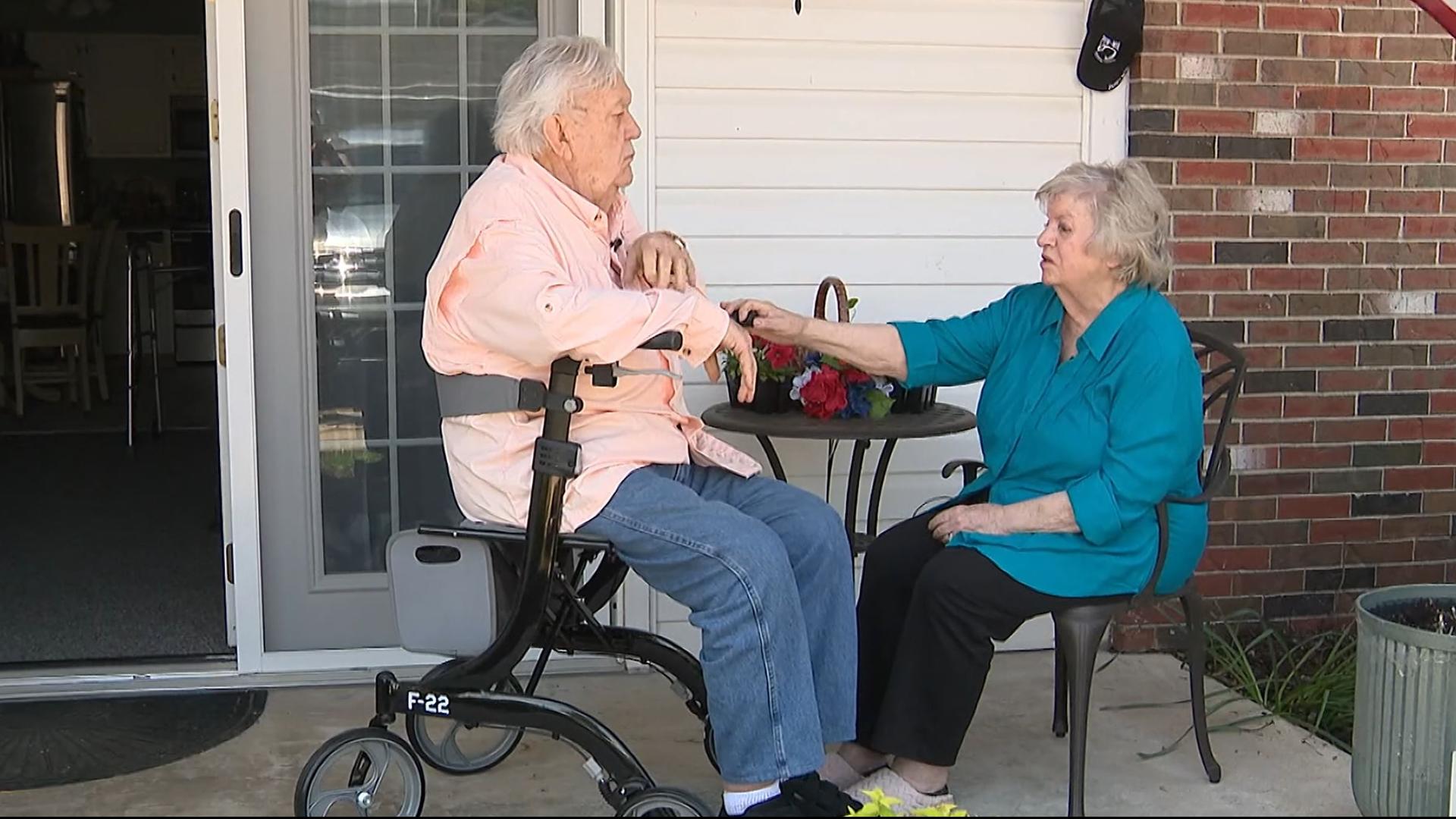MISSOURI, USA — Across the country, there are teachers facing an uncertain future, their retirement dreams shattered.
“I think it's a slap gut punch for teachers," said Jeannette Dowling, a retired teacher from Missouri.
She dedicated 40 years of her life to shaping young minds. Just ask about her students, and her eyes light up.
“Oh, it's a calling," said Dowling.
Her husband, a Navy veteran, spent his career as a Boeing machinist. When they retired, she said she learned she’d only get a fraction of her husband’s Social Security when he passes. She said a financial planner and someone from the Social Security Administration told her she would get a third of her husband’s Social Security when he dies. She said she has talked with other teachers who have experienced the same thing.
“What am I supposed to do?” said Dowling. “I wasn't counting on losing that much.”
Despite her decades of teaching, Dowling only contributed to a pension for her 10 years in public schools. She said it left her with about $40,000. It's money long gone, spent on medical bills and a mortgage.
“I feel very uneasy," she said.
The I-Team learned that Missouri is one of 15 states where educators are impacted by decades-old laws known as the Government Pension Offset and the Windfall Elimination Provision. They affect people who do not pay into Social Security and instead get a pension.
The Windfall Elimination Provision (WEP) was passed in 1983 and the Government Pension Offset (GPO) was passed in 1977. The Windfall Elimination Provision is a reduction in benefits imposed on someone’s own Social Security benefit when they begin to collect a pension from a public service job that did not collect Social Security taxes during their employment. It impacts people who worked for state and local governments. The Government Pension Offset is a Social Security provision that reduces benefits for people who apply for Social Security spousal or survivor benefits if they worked for a state or local government in non-Social Security-covered employment and are entitled to a pension from that employment. Salvador said the Government Pension Offset is what Dowling was likely impacted by.
States where the federal Government Pension Offset and Windfall Elimination provisions are enforced, where teachers are often not covered by Social Security and receive a pension instead:
1. Alaska
2. California
3. Colorado
4. Connecticut
5. Georgia (some areas)
6. Illinois
7. Kentucky (some areas)
8. Louisiana
9. Maine
10. Massachusetts
11. Missouri
12. Nevada
13. Ohio
14. Rhode Island (some areas)
15. Texas
Source: National Education Association
In Missouri, it’s estimated there are 45,000 people just like Dowling. In Illinois, there are nearly 105,000. Many of them are blindsided, according to the National Education Association.
“They don't know anything about it," said Dowling.
Paul Van de Water, senior fellow at the Center on Budget and Policy Priorities, a Washington D.C.-based think tank that analyzes the impact of federal and state government budget policies, argues it’s about fairness.
He said he supports the Social Security's Windfall Elimination Provision and Government Pension Offset. He told us in an interview: “Well, the ideal situation would be if all employment were covered by Social Security, then this issue wouldn't arise. But when you're a non-covered employee, the special adjustments are needed to make sure that you're treated comparably - not better than folks who've been in Social Security their entire lives. So it's a question of ensuring equity between people in and outside the system.”
Van de Water said these provisions are administered by Social Security, not enforced by the states. He said the issue stems from decisions by some states to operate pension plans that are not integrated with Social Security.
Others say the provisions confuse and penalize people who do not deserve it.
“Yeah, it's completely unfair," said Stephanie Salvador, a lobbyist with the National Education Association, the nation’s largest teachers’ union.
"It comes as a shock to many individuals who do not learn about these provisions until they reach retirement age," she said. “And it's disproportionately affecting women who are more likely to enter public service careers like teaching.”
"And why is there no awareness about this?” asked Senior Investigative Reporter Paula Vasan.
"Employers don't want to disclose these provisions because they know that this could discourage people from entering these professions," said Salvador.
Now, new federally-proposed legislation is aiming to make a change. If passed, Salvador said the Social Security Fairness Act would allow Dowling to collect her full retirement benefits.
H.R. 82, known as the Social Security Fairness Act, is a bipartisan bill that repeals two provisions of the Social Security Act that reduce Social Security benefits for people who receive other benefits. In the Senate, the bill is S. 597 with the same name.
But for now, Dowling is watching every penny.
“Social Security was like a safety net. And it made you feel safe. And I didn't think they could just do this," she said.
As the debate over Social Security reform continues, the voices of retired educators grow louder, demanding justice in their golden years. Others argue repealing the law would give certain public service workers like teachers an unfair advantage.
5 On Your Side reached out to the Social Security Administration. The agency provided these resources:
“We are providing the resources below that discuss the Windfall Elimination Provision and Government Pension Offset.”
Windfall Elimination Provision (WEP)
The WEP does not apply to survivors' benefits. We may reduce spouses or surviving spouses' benefits because of another law, Government Pension Offset.
Government Pension Offset (GPO)

